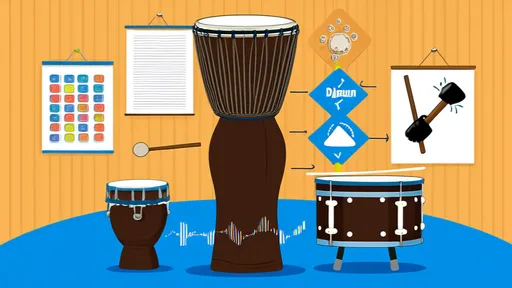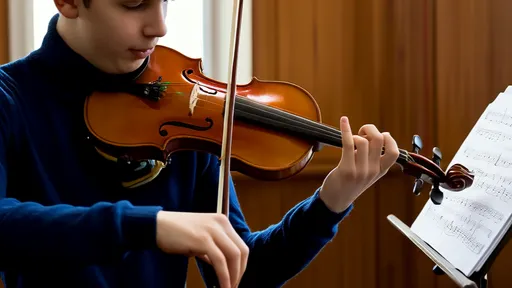The so-called "Mozart Effect" has captured public imagination for decades, promising cognitive enhancement through the simple act of listening to classical music. This idea first gained traction in the early 1990s when a small study suggested that college students performed better on spatial reasoning tests after listening to Mozart’s sonatas. The media quickly amplified these findings, leading to a cultural phenomenon that convinced parents, educators, and policymakers that playing Mozart for children could boost their IQ. However, the reality behind this claim is far more nuanced than the popular narrative suggests.
At its core, the original study never claimed that Mozart’s music could make anyone smarter in a general sense. The researchers merely observed a temporary improvement in a very specific type of spatial task. Yet, the idea took on a life of its own, spawning an industry of Mozart-themed baby toys, CDs, and even legislation in some U.S. states mandating classical music in early education programs. The oversimplification of the original research highlights how scientific findings can be distorted when they enter the public domain.
Subsequent studies have painted a more complicated picture. While some research has replicated the original findings to a limited extent, others have found no significant effect. Meta-analyses suggest that any cognitive boost from listening to music—classical or otherwise—is likely short-lived and task-specific. What’s more, the benefits seem to stem not from Mozart per se, but from any music that induces a positive emotional state or heightened arousal. This explains why some people might experience improved performance after listening to their favorite genre, whether it’s jazz, rock, or even ambient sounds.
The relationship between music and cognition extends beyond the Mozart Effect. Neuroscientists have discovered that musical training can lead to long-term changes in brain structure and function. For instance, musicians often exhibit enhanced memory, attention, and executive function compared to non-musicians. These benefits are thought to arise from the complex cognitive demands of learning an instrument, which engages multiple brain regions simultaneously. Unlike passive listening, active musical training requires sustained effort, discipline, and practice—factors that likely contribute to its more enduring cognitive effects.
Another layer of complexity comes from individual differences. Not everyone responds to music in the same way. Personality traits, musical preferences, and even genetic factors can influence whether someone experiences cognitive benefits from listening to music. For some, music might serve as a powerful motivator or focus enhancer; for others, it could be a distracting nuisance. This variability underscores the importance of personalized approaches when considering music as a tool for cognitive enhancement.
Beyond laboratory settings, the real-world implications of music’s cognitive effects remain debated. In educational contexts, background music has shown mixed results. While some students report improved concentration with instrumental music, others perform better in silence. Similarly, in workplaces, the impact of background music on productivity varies widely depending on the nature of the tasks and the individuals involved. These observations suggest that blanket recommendations about music and cognition are unlikely to be effective.
The commercialization of the Mozart Effect has also drawn criticism from scientists who argue that it exploits parental anxieties about child development. The notion that simply playing classical music can give children an intellectual edge is appealing but misleading. Cognitive development is influenced by a multitude of factors, including nutrition, sleep, social interactions, and enriched learning environments—none of which can be replaced by passive listening.
Despite the debunking of the Mozart Effect as a broad cognitive enhancer, music undeniably holds power over the human mind. Its ability to evoke emotions, trigger memories, and alter moods is well-documented. For many, music serves as a cognitive tool in less direct but equally meaningful ways—reducing stress, fostering creativity, or providing mental stimulation during mundane tasks. These subjective experiences, though harder to quantify, are no less significant than the transient boosts measured in laboratory experiments.
Looking ahead, researchers are exploring more sophisticated ways to harness music’s potential. Technologies like neurofeedback and brainwave entrainment are being tested to create personalized music interventions for cognitive disorders. Meanwhile, the field of music therapy continues to grow, offering evidence-based applications for conditions ranging from Alzheimer’s disease to ADHD. These developments reflect a more mature understanding of music’s role in cognition—one that moves beyond simplistic myths toward nuanced, individualized approaches.
The enduring legacy of the Mozart Effect may not be its scientific validity, but rather the conversations it sparked about how our environments shape cognition. While the original claims didn’t hold up under scrutiny, they prompted valuable research into the complex interplay between sensory stimuli and mental processes. Today, we understand that music’s cognitive effects are real but subtle, highly dependent on context, and far more interesting than any magical IQ-boosting myth could ever be.

By /Jul 9, 2025

By /Jul 9, 2025

By /Jul 9, 2025

By /Jul 9, 2025

By /Jul 9, 2025

By /Jul 9, 2025

By /Jul 9, 2025

By /Jul 9, 2025

By /Jul 9, 2025

By /Jul 9, 2025

By /Jul 9, 2025

By /Jul 9, 2025

By /Jul 9, 2025

By /Jul 9, 2025

By /Jul 9, 2025

By /Jul 9, 2025

By /Jul 9, 2025

By /Jul 9, 2025